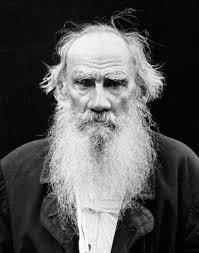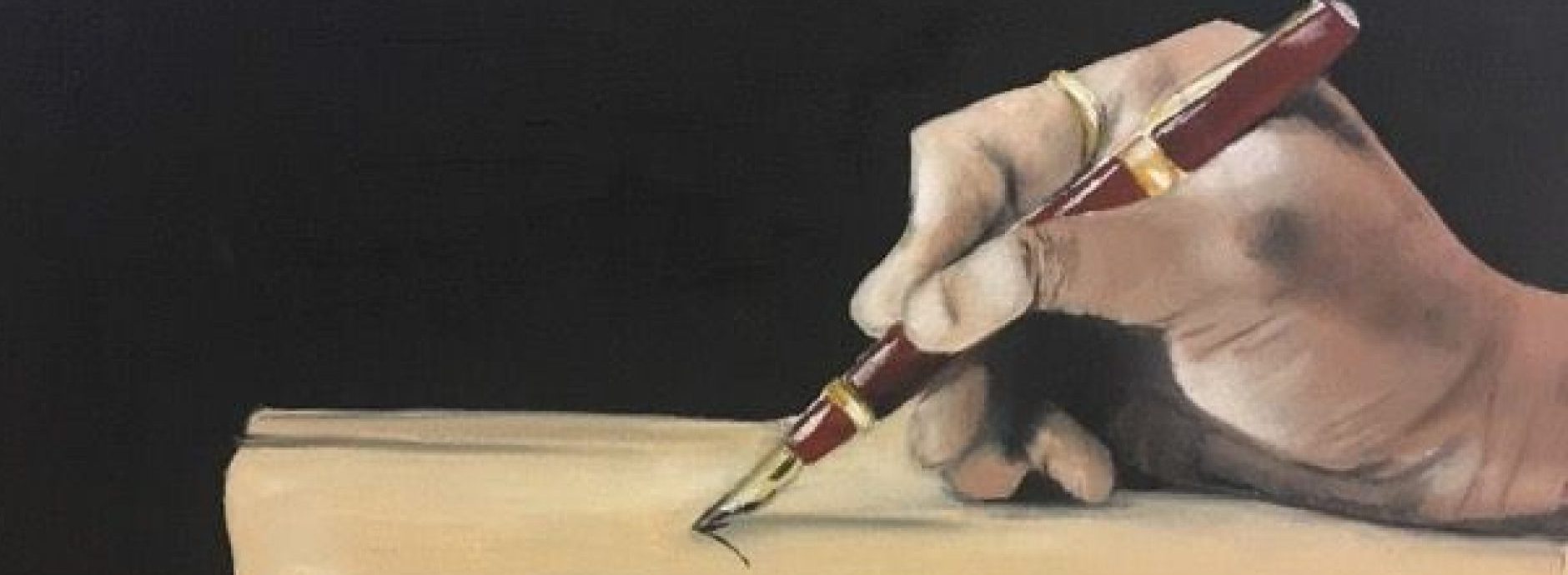What can you find out about Tolstoy’s belief in the value of the working class?
Count Lev Nikolayevich Tolstoy, or just Leo Tolstoy, values the ethics and camaraderie of the working class. Essentially, Tolstoy depicts the working class as the most human. This is illustrated in Tolstoy’s short stories, The Death of Ivan Ilych, and Master and Man.
In The Death of Ivan Illych, it is through Ivan Illych’s proper and illustrious life that we are able to identify the dangers of being privileged. The only generation of love that occurs is between Ivan, his money and his promotions. It is only during times of suffering that the true nature of the human reveals itself. His wife, Praskovya Fyodorovna shows very little sympathy for Ivan’s slow, painful death. The only sorrow found is in the cessation of income after his death. It is in social or economic gain that Tolstoy suggests we begin to lose our soul (something that the working class still maintains): “It is as if I had been going down-hill while I imagined I was going up. And that’s really what it was. I was going up in public opinion, but to the same extent life was ebbing away from me”(122). Here, we are able to see that in both childhood, before the influence of life taints the soul, and the working class, there is a kind of humanity: “It seemed to Ivan Ilych that Vasya was the only one besides Gerasim who understood and pitied him.” Tolstoy suggests that Vasya, Ivan’s son, and Gerasim, his servant, a working class man, were able to conjure empathy for his pain. Neither of them saw the monetary value, or devaluing in his death, what is meant for work or promotion, but singularly, the suffering of a man before death. Ivan notes that “There, in childhood, there had been something really pleasant with which it would be possible to live…but the child who had experienced that happiness no longer existed.’ Gerasim was the only one to care for the dying Ivan – not even the self-obsessed, greedy, wife. He “was sitting at the foot of the bed dozing quietly and patiently”. When commanded to “go away”, Gerasim refused and insisted that it was “all right, sir. I’ll stay a while.” This caring nature is absent in all other characters within the short story, and Ivan knew this, as he felt immense “loneliness in the midst of a populous town.” Thus, in his privileged social circle, Ivan Ilych observes a selfishness, whilst in his observations of the working class, Tolstoy portrays charitable creatures, humane and caring. Image from: https://www.google.com.au/url?sa=i&rct=j&q=&esrc=s&source=images&cd=&ved=0ahUKEwiVkYzulofUAhVDgLwKHR2UAgAQjhwIBQ&url=http%3A%2F%2Fwww.encyclopediaofukraine.com%2Fdisplay.asp%3Flinkpath%3Dpages%255CT%255CO%255CTolstoyLeo.htm&psig=AFQjCNHSTIcA3o5hzQz8PKDIx6O1DT6XYA&ust=1495668865783833
Image from: https://www.google.com.au/url?sa=i&rct=j&q=&esrc=s&source=images&cd=&ved=0ahUKEwiVkYzulofUAhVDgLwKHR2UAgAQjhwIBQ&url=http%3A%2F%2Fwww.encyclopediaofukraine.com%2Fdisplay.asp%3Flinkpath%3Dpages%255CT%255CO%255CTolstoyLeo.htm&psig=AFQjCNHSTIcA3o5hzQz8PKDIx6O1DT6XYA&ust=1495668865783833
This humane characteristic is similarly exhibited within the character of Nikita, in Tolstoy’s short story Master and Man. We are presented with a master and his servant, and in the same way that The Death of Ivan Ilych displays this relationship, we are able to discern the contrasting qualities of the authority figures and the working class. Vasily Andreevich is a materialistic, greedy man, who is juxtaposed to Nikita, a soft, gentle, compassionate being. Tolstoy’s belief that the working class are humane and show camaraderie is evident in Nikita’s relationship with the horse. This camaraderie is mirrored in Gerasim’s affection towards Ivan. Nikita, who would often speak ‘to the horse just as if to someone who understood the words he was using’, and who ‘quite seriously and fully explaining his conduct to Mukhorty’, the horse, shows that he is gentle and open. The working class do not possess the same materialistic nature that often higher classes do. It is this lack of greed that allows them to be fully human. They are removed of the evils of the soul that often gnaw at the side until nothing is left. When these evils are removed, the soul is able to be whole. It is when Andreevich loses these disagreeable preoccupations that he is able to experience a ‘strange and solemn tenderness’. In the selfless moment when he kept josh ‘coat-skirts down around Nikita’s sides’, in an attempt to protect him from the cold, does he encounter this ‘peculiar joy such as he had never felt before.’ It is in the death of his materialistic self that he is able to acquire this new self, reboot with the values that Tolstoy believes the working class bestow. It is as Nabakov states as being the ‘Tolstoyan formula’, of which is applicable to both Andreevich and Ivan: “Ivan lived a bad life and since the bad life is nothing but the death of the soul, then Ivan lived a living death; and since beyond death is God’s living light, then Ivan died into a new life – Life with a capital L.’ This is evident when Ivan states ‘In place of death. there was light.’ This is the same transformation that Andreevich undergoes.
Tolstoy’s belief in the value of working class is evident in his characterisation of the personalities within his short stories. It is in the comparison between privileged society and the working class that we are able to decipher his praise of the working class in their ability to remain essentially human. This is possible through the withdrawal of the evils or money and stature within society.


Hi Victoria,
I had a really good time reading your blog, I did the same question this week for my blog, except I took on a more historical point of view. I found your blog very interesting and a different take on the question compared to my response. I love how you bring up the fact that, in The Death of Ivan Ilych, we see the life that wealthy people lead and how it isn’t all it’s chalked up to be: it can be quite shallow and can lead you into trouble, and yet it’s just the opposite when it comes to the working class. I think it’s great how you continued on this point with Master and Man, with Nikita, from the working class, being of a more humble and kind nature, as opposed to Vasily Andreevich from the upper class and it takes a near-death situation for Andreevich to show some humanity and compassion. What a great blog, very well done!! 😊 Just a couple of small things: I picked up a few lowercase “i’s” when they should be uppercase, as they’re at the start of a sentence and it’s spelled “Andreevich”, not “Andreevichov”. 🙂
LikeLike
Hi Victoria,
I really liked your blog post on Leo Tolstoy. I found it quite useful to adapt to my own understanding of Tolstoy’s texts that were used in both the lecture and tutorials. I enjoyed the way that you had two different ideas, and focused each idea on a different story. I do agree with the point you made about Ivan’s obsession with the wrong things (such as his own wealth and his occupation) when he should show his love to his wife. I believe that the reason why his wife didn’t really care about his slow and painful death, is because Ivan was focusing on the wrong things in life. The one thing i found interesting that you wrote was “It is in social or economic gain that Tolstoy suggests we begin to lose our soul” and i do agree with it. We are so much consumed with things that we believe are important to us, that we actually tend to forget what is truly important to us, and once we realise this, it is sometimes too late.
Your analysis of the other story is just as great as your analysis of ‘Death of Ivan Illych.” I really liked how your gave a quick summary of the story, which can be useful for both those who haven’t read the story and a key study guide. I also found it quite interesting with the way you carried out the paragraph, and how you lead it from the very first word to the last word.
Overall, I couldn’t see any faults in your post. Great work
LikeLike
Thank you 🙂
LikeLike
Thanks so much 🙂
LikeLike
This is an outstanding insight into the wider context of Tolstoy’s writing. Thank you for the effort you have put into this Victoria. Great work!
MG
LikeLike